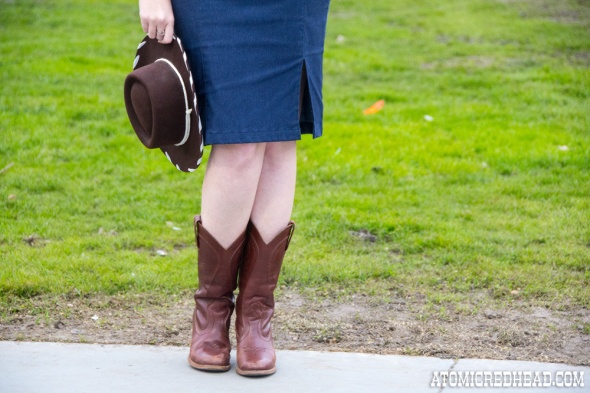What is the most popular exercise in the gym? The answer (if we are taking about guys) is, of course the bench press. In today’s gyms the bench press is the measure of manliness, the standard of studliness and the obsession of guys trying to build big, massive pecs. The exercise is so popular that Mondays are officially known as “International Chest Day” as men all over the world folk to the bench press stations to pump up their pecs. Conversations about lifting almost always include the famous question, “What do ya bench?” But, is the bench press really worthy of such fame and attention? Will it really pack slabs of muscle on your chest? Will it really build you a big, strong upper body or will it lead to a lifetime of cranky shoulders and a lack of gains? Let’s put opinion and bias aside. Its time you learned the truth about the bench press.
My Bench Press Story
I did my early teenage bench pressing on our high school’s antique universal machine. I worked hard and soon got the point where I could do the whole stack. I thought I was strong. However when I first tried real benching, I got stapled to the bench with 185 (i.e. it went down to my chest and stayed there until a spotter rescued me).
In the late 90’s I started working as a trainer. The popular notion at that time was to stop every exercise at 90 degrees. “Experts” thought that moving a joint farther would somehow cause it to explode, so I drank the cool aid and started benching with my elbows flared and stopping half way down. While this was better than going all the way down with my elbows flared, and I did feel my chest a bit, over time I lost a lot of flexibility in my shoulder girdle.
In the early 2000’s I got infatuated with powerlifting. I figured that since powerlifters were so strong I should learn from them how to bench. However, I failed to realize is that the lifters I was learning from where using bench shirts (i.e. specialized elastic super-suits to help you get the bar off your chest). I tried this style of benching for raw pressing (i.e. not wearing a bench shirt) and it failed miserably.
In the late 2000’s, I moved to a more reasonable raw benching style. I still failed to effective target my chest, but I was able to make some strength gains. However, being so unsuited to the lift, my shoulders took a beating and forced me to stop benching.
Now at this point in the story, you might be thinking, “I know where this guy is going – he is going to start ranting and raving about how the bench press is some evil exercise that should be banned so no one ever does it again!” You might be right – expect my professional opinion of the bench press is not based solely on my personal experience. As a trainer and strength coach, I have worked with thousands of different bodies over my 19 years in the industry. I’ve also read extensively (both popular writing and academic), and learned from top coaches. As a result, I know a balanced view of the bench press is best.
The best thing you can do is to weigh the pros and cons of the bench press and make a decision based on what is right for body and your goals!
Advantages of the bench press
- The bench press is a good, basic barbell lift
- The bench press (at least by upper body standards) is a relatively easy exercise to progress. This is an important quality in any main exercise you choose.
- The bench press has successfully helped many people build a strong upper body
- If your work or sport requires a strong upper body, the bench press can help improve performance
- The bench press has successfully helped many people build a bigger upper body
- Virtually every gym has a bench press station
Disadvantages of the bench press
Internal rotation
To grip the bar on the bench press, you put your arms in a position of internal rotation. Training the body is this position contributes to poor posture and causes your palms to face backwards instead of in when you stand.
Scapula cannot move
When you row, your shoulder blades move naturally with your arms. The geeky term for this is scapulohumeral rhythm. When you bench press, your shoulder blades get mashed against the bench. As a result, your arms move without them. This is unnatural and can lead to shoulder girdle dysfunction.
One Depth Fits All???
The standard depth of the bench press is bar to chest. This fails to account for the drastic differences we see in arm length. As a result, those with long limbs will have to exceed natural range of motion to get to their chests.
Doesn’t fit certain body structures
If you have relatively short arms, a big rib cage and resilient shoulders, you are blessed with a good bench press structure. If not, you will typically find the bench press hard to progress, hard to actually feel in your pecs and likely run into shoulder issues. Study bench press videos of high-level powerlifters and you will rarely see a long-armed lifter. You will also rarely see elbows that go below the height of the bench.
Safety
The bench press requires a competent spotter (which is hard very hard to find in many gyms) or a squat/power rack (which is often monopolized by someone who thinks it is a curl rack).
Shoulder health
Many lifters and fitness enthusiasts struggle with shoulder health. Yes, I believe much of this has to do with the iphone posture so common in today’s society, but bench press obsession won’t help.
What Does the Science Say?
Shoulder Health
The Strength and Conditioning Journal Published an excellent review entitled, “The Affect of Grip Width on Bench Press Performance and Risk of Injury. Research has shown that using a grip wider than 1.5x biacromial width and flaring your elbows straight out to the side can increase your risk of shoulder injury. Instead, keep your grip less than 1.5x biacromial width and tucks your elbows to 45 degrees. Research found this narrower position did not affect pectoralis major recruitment, but did increase triceps activation. The authors also suggest stopping 4-6cm above your chest to further reduce shoulder stress (I personally think this is very helpful for those with long arms).
Hitting Your Pecs
Some research shows similar pectoralis major activation between dumbbell and barbell bench presses.
However, more recent research in the
Journal of Strength and Conditioning Research found that bench angle did affect upper chest. In this study researchers placed EMG electrodes on both the clavicle fibers (upper pec) and sternal fibers. They found great activation of the clavicle fibers with a 44 degree incline bench.
In their book, “
Serious Strength Training”, Dr. Tudor Bomba and Lorenzo Cornacchia did EMG research to determine the exercise variations that produced the highest muscle stimulation for several body parts. For the pecs, the bench press showed lower stimulation than dumbbell bench presses. The exercise that produced the highest muscle stimulation was the decline dumbbell bench press.
Dr. Bret Contreras did his own EMG research on chest exercises. His research was similar to Dr. Bompas showing the best chest activation with exercises such as the Guillotine Press, Dumbbell Bench Press, Dumbbell Incline Press, Mid-Pulley Crossover and Weighted Dip. You can read more about this research in his excellent T-Nation article:
Inside the Muscles: Best Chest and Triceps Exercises.
Bench Pressing for Chest Mass
Most people who have built a big chest with the bench press have a good bench press structure. Those with long arms have to take a really wide grip to get at the chest and most people’s shoulders won’t like this. There are exceptions of course. Arnold had long arms and very resilient shoulders that allowed him to use wide-grip benching to build an amazing chest – are you that lucky?
If you can bench well and without problems, feel free to start chest workouts with a heavy barbell bench press for strength and mechanical tension. Then, move to dumbbells to really get a chest pump going. The first time I really felt my chest working and actually build some chest muscle was when I started bench pressing with dumbbells.
Dips are another amazing chest builder. While not everyone’s shoulders can handle them, if you can they can work wonders. I was forced to resort to dips after my shoulder had enough bench pressing. I was very pleased with the newfound chest development and upper body strength they gave me.
Bench Pressing for Athletes
If you are an athlete playing a sport that requires good upper body strength, the bench press can help get you there. However, you need to remember that the bench press is not really a game-changer. Physical performance in most sports is about how much force you can put into the ground and who quickly you can do so. Squat, deadlift and Olympic lift variations are the game changers.
Don’t specialize in the bench press. Remember that specialization creates dysfunction. Many people screw up their shoulder girdle function by focusing too much on the bench press.
Check your ego at the door. Use a weight that allows you to do all your reps on your own (I know this sounds obvious but it is so rarely applied in most gyms). Keep your butt on the bench for the whole set. Most people like to bench with a wide grip because they can lift more weight. However, a narrower grip will help protect your shoulders and build more useful pushing strength.
For many sports like volleyball and basketball, having long arms is a great asset. However, for lifting, long arms are a liability. If you are blessed with long arms, consider
floor presses or
pin presses so you don’t exceed natural shoulder range of motion.
Bench pressing with a Swiss bar can also help protect your shoulders and build useful high-performance pushing strength.
Also, check out this video on bench pressing for athletes:
Bench Pressing for Lifters
If your sport is Powerlifting, then you will obviously be specializing in the bench press. However, don’t follow the old mentality of, “All you need is squat, bench and deadlift.” Most of today’s top powerlifters do a ton of upper back work. If you want to last long in the sport, you would be wise to follow their lead. Also, while you want to compete using the grip that allows you to lift the most weight, you may want to do more of your training with a narrower grip, Swiss bar or reverse grip to really hammer your triceps and increase your longevity in the sport.
The other question that anyone competing in any sport muscle wrestle with is, “Is it worth it?” Pushing your body to a high-performance extreme comes at a price – you may be beat up for the rest of your life. Are you willing to pay that price?
Bench Pressing for Everyday Folks
If you don’t fall into any of the above categories, you can still bench. However, start by taking a hard look why you want to bench press and how structurally suited you are to that lift. If you like to bench and can do so without shoulder problems, then, enjoy it. However, if you aren’t a lifter, don’t specialize in it (i.e. don’t give it more attention than other upper body exercises). If you run into problems, find
other variations that work better for you. Remember, that while the bench press is a great exercise for some, you don’t need to do regular bench presses to build a stronger and/or bigger upper body.
How about you? How has the bench press worked for you? I welcome your comments and questions below.
More Articles on the Bench Press:

































